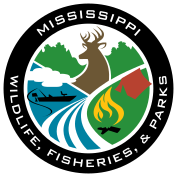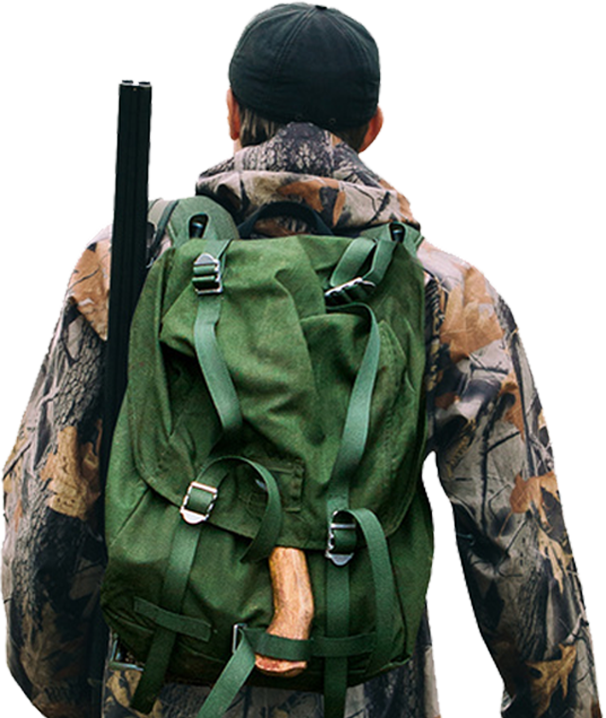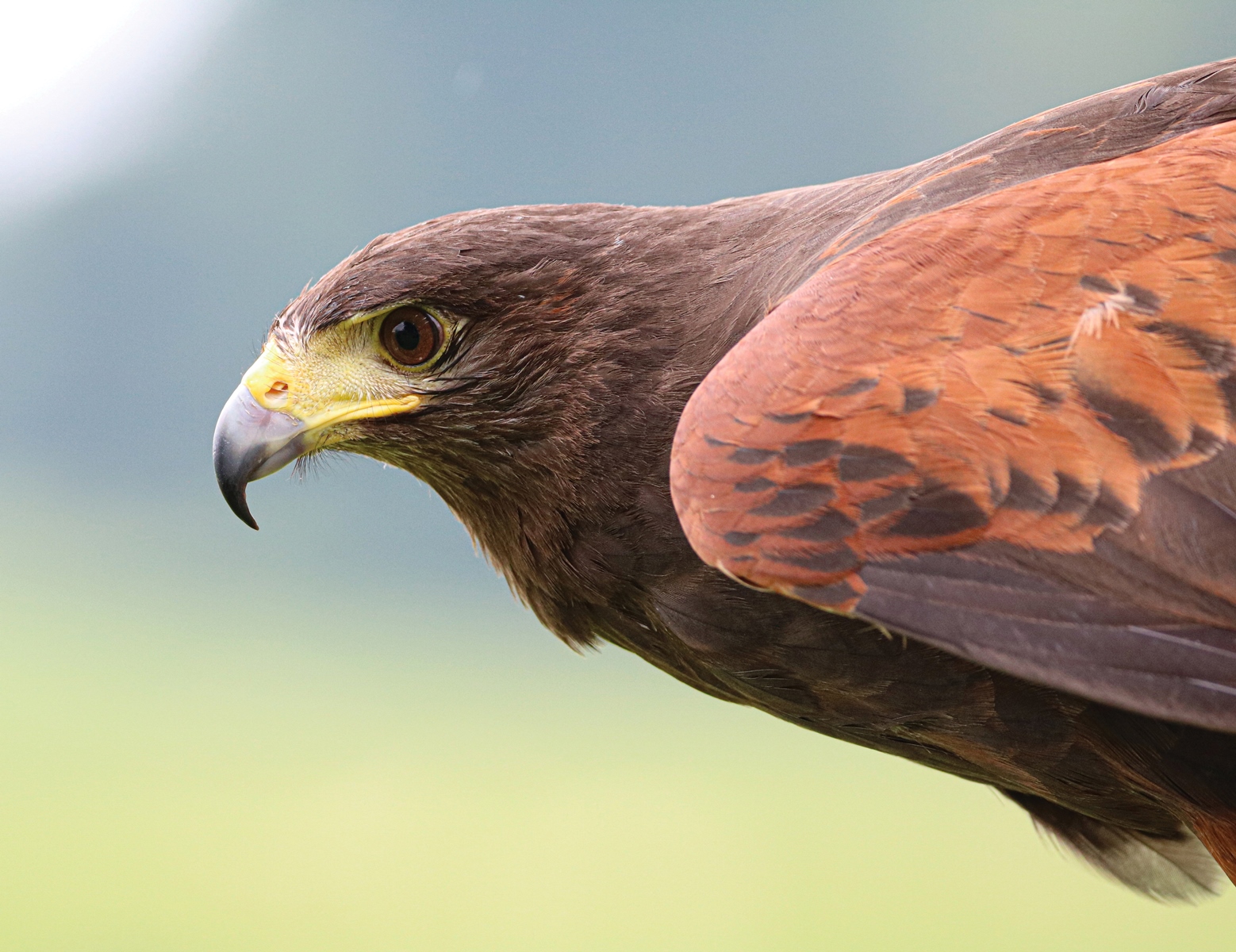
If you have questions about purchasing a license call 1-800-5GO-HUNT.
Gear up for the hunt with our general rules and regulations—your quick guide to a safe and successful outdoor experience.
Landowner permission is required to hunt, fish, or trap on the lands of another.
See more information regarding season dates and bag limits for hunting in Mississippi.
Mississippi's public lands are subject to special seasons and regulations that may vary from statewide seasons and regulations. It is always suggested to check the rules and regulations for the specific location you are interested in hunting before visiting. See more information on MDWFP's Wildlife Management Areas.
Legal shooting hours for resident game are one-half (1/2) hour before sunrise to one-half (1/2) hour after sunset. Legal shooting hours for migratory birds are one-half (1/2) hour before sunrise to sunset.
It shall be unlawful for any person to hunt, if such person is in the possession of a firearm that is not unloaded, on any street, public road, public highway, levee, or any railroad which is maintained by any railroad corporation, city, county, levee board, or state or federal entity, or in the right-of-way of any such street, road, highway, levee, or railroad.
"Unloaded" means that a cartridge or shell is not positioned in the barrel or magazine of the firearm or in a clip, magazine, or retainer attached to the firearm. An unloaded muzzleloading caplock firearm is one with the cap removed. An unloaded muzzleloading flintlock firearm is one with no powder in the flashpan.
It is illegal to hunt or kill any game animal, furbearing animal, or game bird from any motorized vehicle or boat. However, squirrels and game birds may be hunted from a boat if the motor is off and the progress of the boat has ceased.

Legal weapons for hunting from one-half (1/2) hour after sunset to one-half (1/2) hour before sunrise are restricted to handguns or rifles using no larger than .22 standard rim-fire cartridges (no 22 magnums) and shotguns with shot no larger than No. 6. When hunting migratory birds, a shotgun must be "plugged" so that it can hold no more than three (3) shells at one loading. The hunting of turkeys during the spring gobbler season shall be restricted to shotguns only and with no shot larger than number two, compound, re-curve, crossbow, and long bows. However, any quadriplegic may hunt turkey with a rifle.
Youth may carry and use any firearm with which they can safely hunt, and in compliance with other applicable laws, rules, and regulations.
Longbows, recurves, compound bows, and crossbows. There is no minimum or maximum draw weight. There is no minimum arrow length. Fixed or mechanical broadheads may be used.
There are no caliber or magazine capacity restrictions on firearms. Primitive weapons (as defined above) and archery equipment may be used during gun seasons.
Weapons legal for use during the Primitive Weapons season are all archery equipment and primitive firearms. ”Primitive firearms,” for the purpose of hunting deer, are defined as single or double-barreled muzzleloading rifles of at least .38 caliber; OR single shot, breech loading, metallic cartridge rifles (.35 caliber or larger) and replicas, reproductions, or reintroductions of those type rifles with an exposed hammer; OR single or double-barreled muzzleloading shotguns, with single ball or slug. All muzzleloading primitive firearms must use black powder or a black powder substitute with percussion caps, #209 shotgun primers, or flintlock ignition. “Blackpowder substitute” is defined as a substance designed, manufactured, and specifically intended to be used as a propellant in muzzleloading or other black powder firearms, excluding modern smokeless powder. Metallic cartridges may be loaded with either black powder or modern smokeless powder (cartridges purchased at sporting goods stores). Telescopic sights are allowed while hunting with any primitive firearm during the primitive weapon seasons. A telescopic sight is defined as an optical sighting device with any magnification. During any open season on deer with primitive weapons after November 30, a person may use any legal weapon of choice, including pre-charged pneumatic weapons (air guns or bows), on private lands only, if the person is the title owner of the land, the lessee of the hunting rights on the land, a member of a hunting club leasing the hunting rights on the land, or a guest of a person specified above. If the person is required to have a hunting license, the person must have a primitive weapon license, Sportsman’s License, or a Lifetime Sportsman’s License.
Under the Lacey Act, interstate travel with illegally obtained wildlife is a federal offense.
Non-Resident hunters, depending on what state they are hunting in, are subject to varying rules and regulations regarding transporting harvested wildlife across state lines. We encourage all hunters who plan to hunt out of state to verify the rules and regulations of transporting harvested wildlife across state lines.
For Mississippi's transportation rules and regulations, check the species portion of this page.
A person cannot buy or sell or offer for sale, or exchange for merchandise or other consideration, any game animal, game bird, or game fish (regardless of whether it was taken in or out of Mississippi), except as follows:
It is also illegal to buy or sell any non-game wildlife native to the State of Mississippi.
Supplemental feeding of wildlife is allowed on private land in any county or portion thereof, not in a Chronic Wasting Disease (CWD) Management Zone. The feed may only be provided from above-ground, covered feeders or stationary spin-cast feeders. Any type of feed may be used. Feed may not be poured, piled, or placed directly on the ground. All feed and feeders much be at least 100 yards away from the nearest property line. Deer hunters may hunt in the proximity, with no minimum distance, from a feeder as described above.
It is illegal to hunt or trap any wild animal or wild bird with the aid of bait. Liquid scents may be used. Electrically operated calling or sound-reproducing devices may be used for hunting nuisance animals and crow only.
Hunting turkey with dogs is prohibited. During the spring turkey season, it is illegal to run dogs in areas where the turkey season is open, except in permitted enclosures. Dogs are not allowed for hunting deer during archery season, primitive weapons season, or still hunting season. Application for dog field trials must be made to the Department of Wildlife, Fisheries, and Parks at least 14 days before the opening of the trial.
It is unlawful to shine a light from a public road or right-of-way, or on the property of another, at night, from one-half (1/2) hour after sunset to one-half (1/2) hour before sunrise. Harassment of Wildlife is a Class 2 violation that is punishable upon conviction of a $100-$500 fine.
Title 50 Code of Federal Regulations Part 19 - Airborne Hunting
Subpart B—Prohibitions
§ 19.11 General prohibitions.
Subpart C—Federal Permits
§ 19.21 Limitation on Federal permits.
No Federal permits will be issued to authorize any person to hunt, shoot, or harass any wildlife from an aircraft.
All birds of prey (eagles, hawks, osprey, owls, kites, and vultures) and other nongame birds are federally protected species and may not be hunted, molested, bought, or sold according to the Migratory Bird Treaty Act. English sparrows, starlings, blackbirds, and crows may be taken according to regulations.
The Endangered Species Act is important because it protects our native fish, plants, and other wildlife from going extinct. Even if a single species is lost, it can have detrimental impacts on the rest of the ecosystem. The benefits of preserving threatened and endangered species are invaluable. An endangered species is defined under the Endangered Species Act as "any species which is in danger of extinction throughout all or a significant portion of its range."
The following endangered species are also protected:

View essential information for residents and non-residents.
Access all rules and regulations associated with the Mississippi Department of Wildlife, Fisheries, and Parks to ensure compliance and safety.